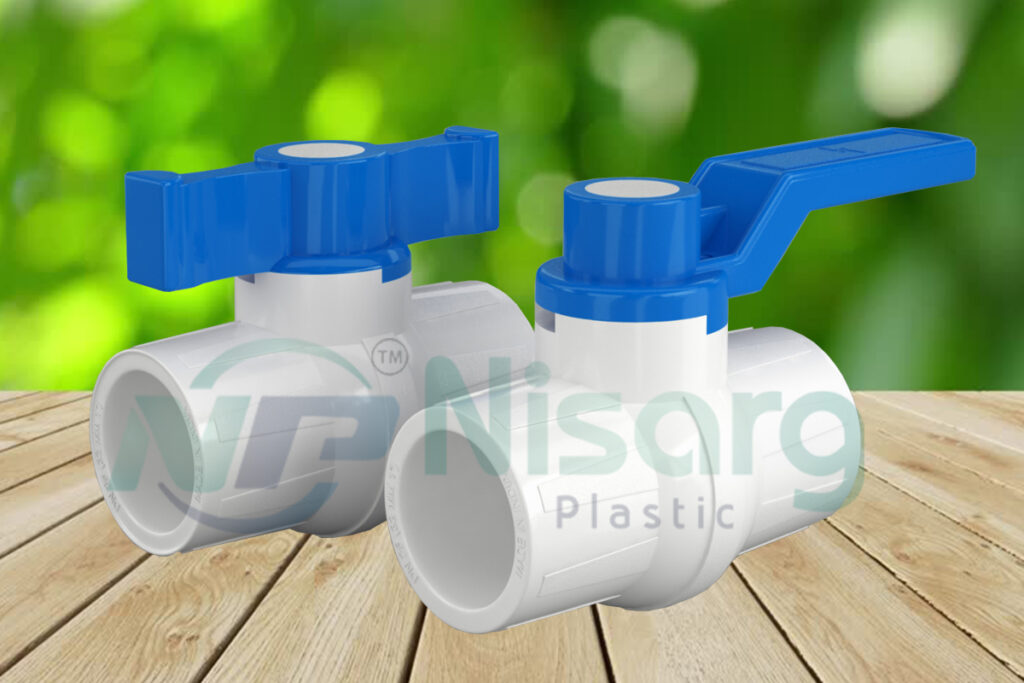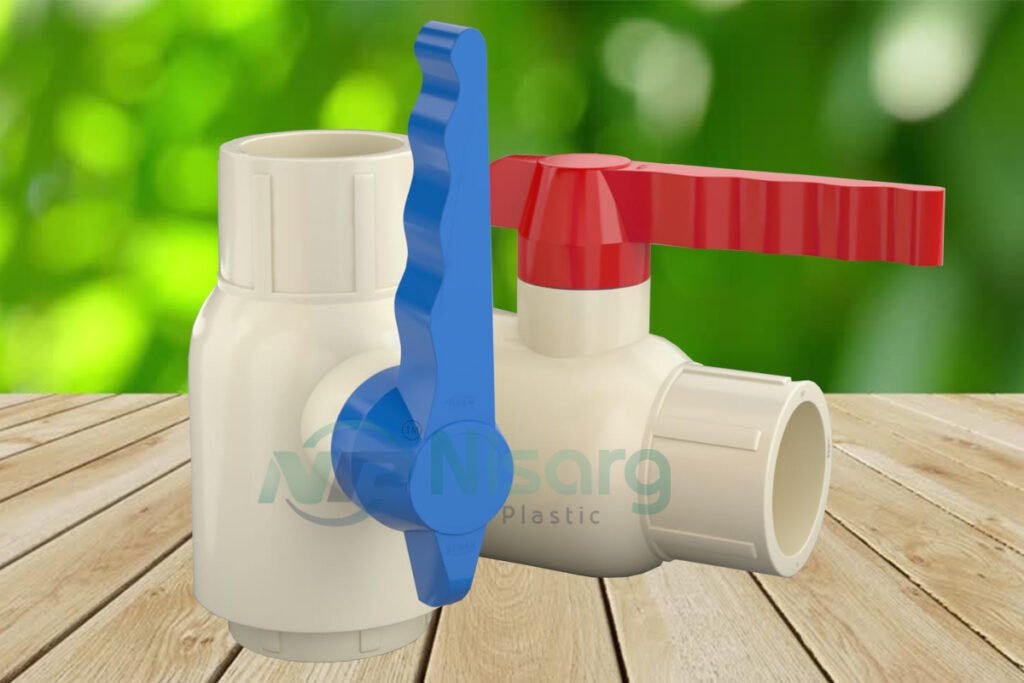Industrial cooling systems are critical to the safe and efficient operation of manufacturing plants, chemical processing units, power stations, and more. When these systems fail, the consequences can be severe: production slowdowns, equipment damage, and increased operational costs. As a leading manufacturer of high-quality valves, Nisarg Plastic understand the common causes of these failures and how UPVC and CPVC valves can help solve them.
Common Causes of Industrial Cooling System Failures
-
Corrosion and Chemical Attack
Cooling systems often use water mixed with chemicals or other fluids to maintain optimal temperatures. Over time, metal pipes and valves can corrode due to chemical reactions or oxidation. Corrosion weakens components, leads to leaks, and ultimately disrupts cooling performance. -
Scale and Deposits
Hard water or chemically treated water can leave mineral deposits inside pipes and valves. Scale reduces flow efficiency, obstructs valves, and forces pumps to work harder, increasing wear and tear. -
Leaks and Mechanical Failures
Worn-out or poorly maintained valves can fail to control flow properly. Leaks reduce system efficiency and can create safety hazards in environments where hot or chemically treated water is circulating. -
Temperature and Pressure Stress
Industrial cooling systems operate under varying temperatures and pressures. Traditional metal valves may fail if exposed to conditions beyond their rating, causing operational interruptions.
How UPVC and CPVC Valves Solve These Problems
1. Superior Corrosion Resistance
UPVC (Unplasticized Polyvinyl Chloride) and CPVC (Chlorinated Polyvinyl Chloride) are thermoplastics resistant to most chemicals used in cooling systems. Unlike metal valves, they do not corrode or react with chemicals, ensuring long-term reliability and leak-free operation.
2. Scale Resistance
These plastic valves have smooth internal surfaces that prevent mineral deposits from adhering, reducing scaling problems and maintaining optimal flow throughout the system.
3. Temperature and Pressure Handling
CPVC valves can handle higher temperatures (up to 95°C) and moderate pressures, making them suitable for hot water cooling loops. UPVC valves, while optimized for lower temperatures, are perfect for standard water circulation systems. Both maintain integrity under stress, preventing mechanical failures.
4. Reduced Maintenance and Downtime
With their chemical and corrosion resistance, UPVC and CPVC valves require less maintenance than metal valves. They reduce the need for frequent replacements, minimizing downtime and operational disruptions.
5. Cost-Effective Solution
Replacing traditional metal valves with UPVC or CPVC options reduces the long-term cost of maintenance and energy consumption, as efficient flow reduces pump workload and system strain.
Real-World Impact
Industrial clients who have upgraded to UPVC and CPVC valves report fewer cooling system failures, extended equipment life, and more consistent operational performance. For chemical plants, these valves prevent corrosion-related leaks. For manufacturing units, they reduce downtime caused by scale buildup or valve failure.
Conclusion
Failures in industrial cooling systems are often preventable with the right components. UPVC and CPVC valves offer a reliable, corrosion-resistant, and low-maintenance solution that addresses the root causes of these failures. As a trusted manufacturer, we provide valves designed to optimize cooling system efficiency, extend equipment life, and reduce operational costs. Choosing UPVC or CPVC valves is not just an upgrade—it’s a strategic step toward reliable, uninterrupted industrial operations.


